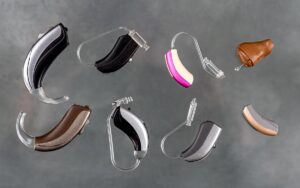There is one component that is the key to keeping hearing aids economical and that is the batteries. The cost of exchanging them adds up quickly and that makes it one of the largest financial concerns when shopping for hearing aids.
Usually the batteries quit at the worst time which is even more troubling. This is a big problem even for rechargeable brands.
In order to avoid the need to replace the batteries several times a week, you can do a few things to extend their life. Consider these six straightforward ways you can make those batteries last just a little bit longer.
1. If You’re Looking to Buy a Hearing Aid, be Smart About it
When you first start shopping for your hearing aids is when it all begins. Brand quality and hearing aid features are a couple of the factors which dictate battery life. Not all batteries are created equally, either. Some cheaper hearing devices have low quality parts that work with cheaper cell batteries. You’ll be changing those batteries out a lot, so be certain to discuss this with your hearing specialist.
Consider what features you need, and make some comparisons as you look around. Wireless models come with batteries that need replacing twice as fast as devices with wires. And the larger hearing aids have longer lasting batteries. These larger devices can potentially go for a couple of weeks without needing new batteries as opposed to the smaller ones which will need battery replacement every couple of days. Recognize how all of the features of a hearing aid affect the power usage and then select the ones you require.
2. Take the Time to Store the Hearing Aids Properly
In most cases, the manufacturer will recommend opening the battery door at night to lessen power drainage. Also, you will want to:
Keep your batteries in a cool, dry location. Humidity and heat will impact battery cells. Room temperature is fine just keep them out of the sun and away from heat sources include light bulbs.
Consider using a hearing aid dehumidifier, too. Both the batteries and the hearing aid itself are protected in this way. Their delicate components are easily damaged by moisture in the air.
3. Take Precautions When Changing the Batteries
Begin with clean, dry hands. The quality of the battery is adversely impacted by humidity, grease, and germs. Don’t forget to leave the plastic tab on until you are ready to use the new batteries, too. In order to power on, current hearing aid batteries mix zinc with air. You don’t need that to happen before you are ready.
It is good to let them sit out for five minutes after you pull the tab but before you put them in. The battery could be extended by days if you do this.
4. Play Around With Different Batteries and Battery Sources
Needless to say, cheap batteries will die faster than high quality ones. Think about not just the brands, though, but what types of hearing aid batteries you’re using and also where you purchase them. If you buy in quantity, you can get good batteries for less at some big box stores.
If you buy them online, especially from auction sites like eBay, be careful. Batteries have an expiration date that they need to be sold by. Once they expire, they shouldn’t be used.
The best way to get batteries at an affordable price is to ask your hearing care specialist.
5. Accept The Unavoidable And be Ready For it
Eventually, the batteries are going to die. It’s better if you get an idea when that will occur, so you don’t end up in a difficult situation. To keep track of when the batteries fizzle and need to be replaced, make a schedule. Over time, you’ll get a feel for when you need replacements.
A diary will also help you figure out which brands are best for your hearing devices and what features have the biggest effect on the battery life.
6. What Are the Alternatives to Batteries
One of the greatest things about modern hearing aids is that some are rechargeable. You could pay a little more for those units, but it will be worth it if you can save money on batteries. Rechargeable batteries are likely the best option if you need a lot of features such as Bluetooth or wireless.
The batteries that make hearing aids run can be as significant an investment as the hearing aids are. Lengthening the life of your batteries and saving money begins with a little due diligence. Contact a hearing aid retailer for some information on what option is best for you.





